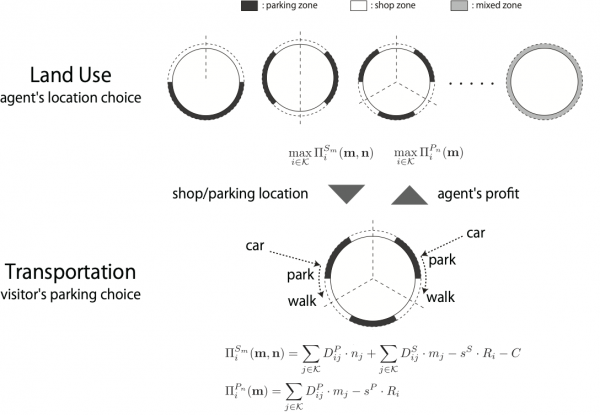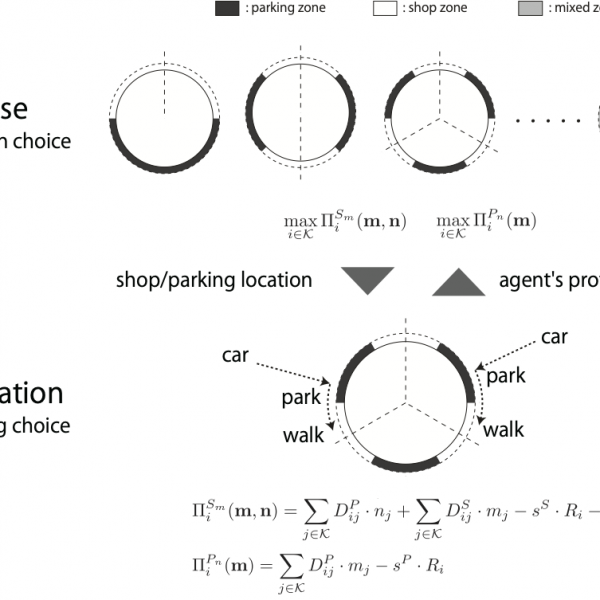IINU021005_working-paper
An Approach to Land Use Equilibrium by Potential Game and Its Application to Land Oligopoly for Parking and Its Dynamics
Aoi Watanabe, Eiji Hato
Abstract
It is essential to understand the formation mechanism of the current distribution of parking spaces to implement proactive parking allocation policies. However, few studies have considered the land use aspect of parking lots. In this study, to elucidate the generation mechanism of the parking lot distribution in the city center, we integrate parking into an urban spatial equilibrium model. The uniqueness of our model is that it explicitly considers agglomeration economies on a walking scale and does not assume an explicit CBD. Thus, it enables us to deal with the externality that the location of the parking lot breaks up the agglomeration of surrounding shops in the city center. Furthermore, we identify a globally stable solution by proving that we can interpret this equilibrium problem as a potential game. Although the transformation to a potential game is generally impossible when there are multiple types of agents, the unique nature of parking lots that we must come back to where we parked makes this possible. As a result, depending on the nature of facilities other than parking lots located in a city, we found that it may not be easy to voluntarily agglomerate parking lots. Also, the results suggest that we can only change the distribution of parking spaces by policies that can manipulate the choice of parking spaces by visitors, such as toll tie-ups, street maintenance, and charging. Therefore, the relaxation of minimum parking requirements cannot affect the distribution characteristics of parking spaces.


